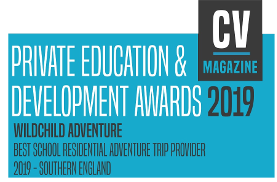The impact of Nature deficit disorder and the preventative role schools can play
Nature deficit disorder – the evidence…
In 2005 American author Richard Louv coined the phrase Nature Deficit Disorder to describe “the human costs of alienation from nature, among them: diminished use of the senses, attention difficulties and higher rates of physical and emotional illnesses.”
While not a medically diagnosed condition, the term has been picked up by numerous authors, media outlets and environmentalists and cited in hundreds of impact studies and research papers highlighting the link between nature and human development, and the worrying impact the growing disconnect between the two is having, particularly on our children’s development and the implication for future generations.
The statistics to support the evidence of a young generation disconnected from nature are certainly concerning:
- The radius children are allowed to explore away from the home has declined by 90% since the 1970s
- One in three children can’t identify a magpie, half of all children can’t differentiate between a wasp and a bee and yet 9 in 10 can identify a dalek (National Trust survey 2008)
- On average, children in Britain spend 17 hours watching television and 20 hours online every week
…the causes…
While we’re a generation lucky enough to enjoy the many benefits of modern technology, the flip side as all parents and educators know, is maintaining a balance for young people between screen time and outdoor time. The challenge gets more difficult with the development of more and more innovative and engaging media, and as children get older and more independent, with more control over their free time. Why spend hours trying to spot a bird in the wild through a set of binoculars when you can click a button and see it in on your screen in high definition in seconds?
But modern technology is not the only barrier to nature young people face…
- Education – the national curriculum teaches children about the world, but often fails to teach a basic understanding of the local environment, common species to their area and indigenous flora and fauna. A basic level of knowledge to help children identify and appreciate nature on their doorstep, rather than being taught about nature as being limited to rainforests and remote woodland far removed from their day to day lives.
- Access – statistics show a greatly reduced radius children are able to navigate independently since the 1970s, so access to the great outdoors for young people is far more limited, and the high cost of transport makes it even less accessible for some urban families. How can young people explore the wild if they can’t get further than the end of their street?
- Fear – our reduced knowledge and engagement with nature breeds a fear of the unknown. Of unfamiliar species, climate, the ability to navigate an unknown area and new landscapes. So even though the natural environment poses far fewer risks than those found in our own home, this fear has led to a dramatic decrease in children’s freedom to explore nature.
- Social – outside of school children’s social life is taking place more and more online. Children communicate via video games, social media platforms and messaging services much more than they do via face-to-face socialising and play, which often leads to feelings of isolation and loneliness.
The benefits of nature for young people
The growing urgency and concern around this topic directly link to the many documented benefits of nature for young people, including:
- Enhanced physical health
- Improved mental wellbeing
- Supporting the development of creative and problem-solving skills
- An opportunity to build social skills outside of the classroom environment
- Fostering an interest in and passion for nature and protecting the environment
- Increased resilience and risk-taking
85% of children report being happier after being in nature (Natural England 2021 – the Children’s People and Nature Survey for England).
In 2021 the International Journal of Environmental Research and Public Health published a review of evidence finding associations between nature and health using research across disciplines, geographic locations and populations. The results show clear evidence that exposure to nature:
- Reduces the negative effects of stress
- Generates positive associations and emotions
- Is linked to a decrease in anxiety in depression
- Improves attention
- Generates a positive physiological response not replicated by images of nature
- Boosts the immune system
Now more than ever we need to be supporting young people to improve their physical and mental wellbeing, to boost their concentration and support their development of social skills and resilience.
How schools can help
The recent Covid-19 pandemic showed us that our schools are so much more than simply a place of education. They are the place young people develop social skills, build friendships, learn independence and develop the positive mental attitude and resilience that will guide them as they transition from school to further education and the workplace.
As educators we have an important role to play in connecting our students with nature to help them access the many benefits it brings. The rise in the number and popularity of forest schools across the UK is testament to the priority more and more schools and parents are placing on access to nature being an integral part of the school curriculum. The Natural Trust ‘National Childhood’ report published by Stephen Moss in 2012 identified key educational benefits of exposing children to nature including:
- Building emotional resilience
- Learning to take risks
- The many documented benefits of outdoor play
- Exposure to nature is proven to reduce the symptoms of Attention Deficit Hyperactivity Disorder (ADHD)
- Time spent outdoors boosts children’s mood and self-esteem, leading to positive learning and behaviour in the classroom
- Research shows a positive cognitive impact of learning outdoors – greater knowledge and understanding
Children who learn outdoors are physically and mentally healthier. They absorb more information, they work better together and they are happier. Urban schools and schools without easy access to nature who prioritise the incorporation of local nature trips, bushcraft days and woodland residentials see a huge positive impact on pupils’ learning and behaviour as a result.
Levelling up
Nature is a great leveller. Any child regardless of their socio-economic background, their academic ability and their learning needs can enjoy time outdoors. Students that may be reserved and lack confidence in the classroom can shine when taking on new challenges outdoors, and those struggling to achieve academically often find a new skill or passion in the great outdoors. Nature is inclusive, it’s surprising and it’s free.
Get wild with Wildchild
At Wildchild we specialise in school trips that give children the freedom to explore and connect with the great outdoors in a safe and supportive woodland setting. Our expert team support children of all ages to try new activities, challenge themselves and build independence and teamwork in an encouraging natural outdoor environment.
Get in touch to book a Wildchild Adventure that gives your students the opportunity to get wild!
Recent Posts
- Why you should be insisting on LOtC for your school residential trips
- The impact of Nature deficit disorder and the preventative role schools can play
- Residential trips for secondary schools to ease transition
- Building character through primary school trips
- Six reasons why more schools are choosing UK school trips (spoiler alert: it’s not because of Covid!)
- School trips after the pandemic
- 5 winter outdoor learning activities for schools
- 5 ways to get more from your School Bushcraft Trip
- Residential trips to benefit learning
- Perfect Primary School Trip Planning
Blog home







